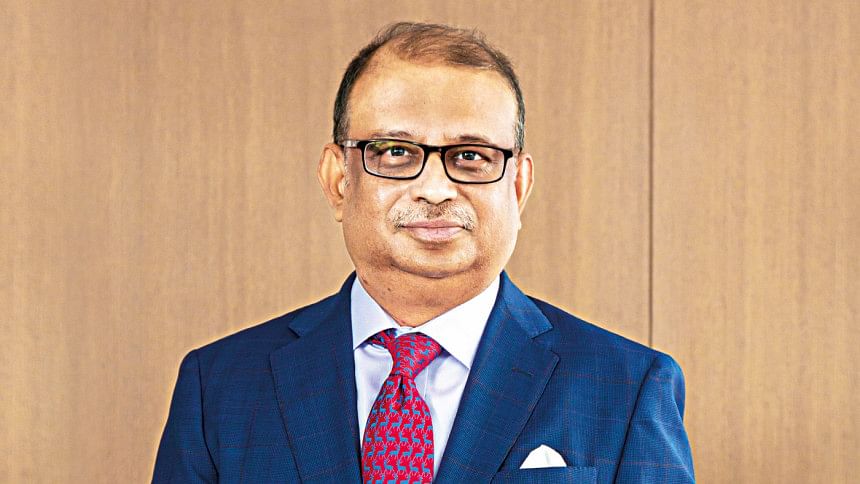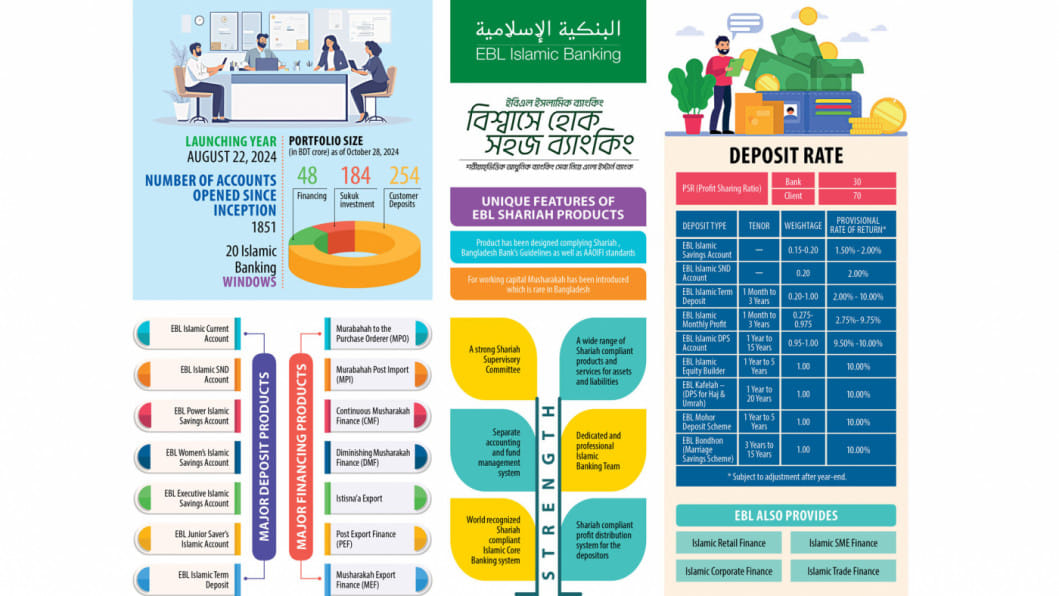Regaining public trust in Islamic Banking is a key challenge now

The Daily Star (TDS): What is the current state of Islamic banking in Bangladesh?
Ali Reza Iftekhar (ARI): Islamic banking in Bangladesh has long been considered a financial system that aligns with the religious values of the country's Muslim majority and gained popularity by promising interest-free and ethical banking. Over the past four decades of its operation, Islamic banking has emerged not just as an alternate banking channel but a mainstream banking system.
Currently, ten full-fledged Islamic banks are operating in the country with 1,678 branches and 17 conventional banks are offering Islamic banking products and services through both branches and windows (34 Islamic banking branches and 196 Islamic banking windows) while 11 other conventional banks only have windows, the number of which is around 534. The total share of Islamic banking now exceeds 25 percent of the deposits and investments in the entire banking sector.
TDS: What type of Shariah-compliant services do your bank offer?
ARI: We have developed a good number of Shariah-compliant deposit products, keeping customer needs in mind. Our deposit product includes: Islamic Current Account based on Al-Wadiah Contract, Islamic Savings Account, Islamic Special Notice Account, Islamic Term Deposit Account, and Islamic DPS based on Mudarabah contract.
Our funded financing products comprise Murabahah to the Purchase Orderer (MPO), Murabahah Post Import (MPI), Continuous Musharakah Finance (CMF), Diminishing Musharakah Finance (DMF), Istisna'a Export, Post Export Finance (PEF), Musharakah Export Finance (MEF). We provide Retail, SME and Corporate financing under these products depending on customer needs. Apart from that, we offer non-funded products, such as Letter of Credit and Bank Guarantees. All these products are designed following the Islamic Banking Guidelines of Bangladesh Bank duly approved by EBL Shariah Supervisory Committee.
TDS: What challenges do Islamic banking currently face that need to be addressed?
ARI: Despite having huge prospects, there are some issues that need to be addressed for Islamic banking operations to flourish. Key challenges include ensuring proper Shariah compliance, developing Islamic Banking professionals, reviewing existing Islamic Banking Guidelines, developing mechanism to short-term liquidity challenges and bringing uniform accounting practices among all Islamic Banks. Moreover, creating environment for continuous research and development, ensuring Maqasid-Al-Shariah or Objectives of Shariah for sustainable development and increasing awareness. At this moment , regaining public trust damaged due to the mismanagement of financing by some Islamic Banks are crucial for ensuring long-term sustainability in the Islamic banking sector.
TDS: Do you have any plans to add more features to the Islamic banking channel in your bank to enhance customer service?
ARI: EBL Islamic Banking is grounded in the principles of trust, transparency, and compliance with Shariah law. Guided by a robust Shariah Supervisory Committee, our services are meticulously crafted to ensure that every transaction our customers engage in is both ethical, profitable, and in line with their faith-based values. At EBL, we believe in fostering long-term partnerships based on mutual respect and shared values. For Islamic Banking, we will continuously focus on our passion for performance, our compliance culture in light of Shariah. EBL cares for customers, similar to our conventional banking. By choosing our Islamic Banking services, our customers will not only safeguard their financial interests but also contribute to a financial system that promotes justice, equity, and social responsibility. We have introduced Musharakah to cater to the working capital requirements for financing overhead costs which is rare in Bangladesh. Besides, our Islamic banking team is working to introduce Islamic Factoring, which will be the first of its kind in the market.
TDS: What are the prospects for the overall growth of Islamic banking in the country?
ARI: Islamic banking system has been playing a significant role in mobilizing deposits and financing various economic activities in Bangladesh since its inception. As Shariah based transactions are becoming popular to the mass people due to its inherent strength and beauty of Maqasid, a good number of banks are offering Islamic banking services to meet up growing demand.
Besides, Bangladesh Bank's initiatives, such as Mudarabah Liquidity Support (MLS) and Islamic Banks Liquidity Facility (IBLF) have been crucial for ensuring the stability and resilience of Islamic banking. Both Dhaka and Chattogram bourses have introduced Shariah Index in the capital market. The government and regulatory authorities have implemented various Islamic monetary policy tools to effectively manage liquidity within the Islamic banking system. This will help us achieve a great deal of financial inclusion both in rural and urban areas. As a result it will be possible to bring a significant number of people under Islamic banking services which will further strengthen and boost up the financial sector.


 For all latest news, follow The Daily Star's Google News channel.
For all latest news, follow The Daily Star's Google News channel. 



Comments